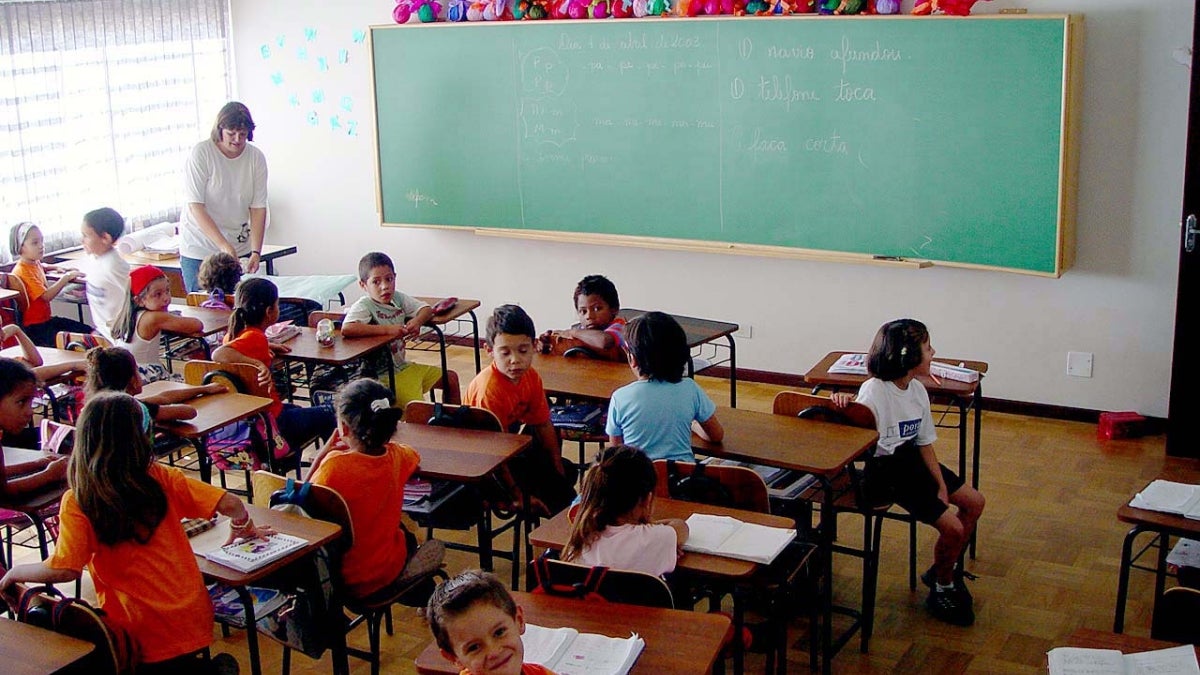Politics aside, ASU expert says schools can help transgender students

As the federal government wrangles over the rights of transgender students, an Arizona State University expert says that politics aside, schools can still create an affirming environment for those children.
President Donald Trump revoked anti-discrimination protections for transgender students on Wednesday; some news outlets had reported disagreement among top federal officials on the rollback.
“I think this step by the administration serves as a blow to transgender youth, but we know that schools and districts around the country still have a moral and ethical and legal responsibility to make sure all students feel safe and free of discrimination and harassment,” said Camellia Bellis, who has worked as an advocate for transgender students and their families.
Last May, the U.S. Education and Justice departments said that transgender students should be allowed to use facilities such as bathrooms and locker rooms consistent with their gender identity. Immediately after that ruling, Arizona joined several other states in a lawsuit challenging that interpretation.
Bellis, a program manager, developed a transgender education program that is being offered to K–12 teachers by Project Connect, part of the T. Sanford Denny School of Social and Family Dynamics at ASU. The workshops trains teachers, administrators, nurses, counselors and other educators in how to create a welcoming atmosphere that helps transgender students learn.
Transgender people have a gender identity, or gender expression, that differs from their assigned sex.
Bellis answered some questions for ASU Now:
Question: How will a rollback on the federal guidelines affect schools?
Answer: It might seem a bit confusing to some schools or districts — what, specifically are they supposed to do? We know that Title IXTitle IX is the federal law prohibiting sex-based discrimination in education. and the U.S. Constitution protect transgender students from discrimination. They just don’t have that federal backing right now, and it’s sad because it sends a message to transgender youth in this country that “you don’t matter to the federal government.” And that’s a harmful message to send.
There are no state protections in Arizona for LGBT students, so it really is dependent on districts and schools to have those policies.
We won’t know much more legally until the arguments in front of the Supreme CourtThe Supreme Court is set to hear oral arguments on March 28 in the case of a transgender teenager from Virginia, Gavin Grimm, who sued for the right to use the boys’ bathroom. at the end of March.
Q: How many transgender students are there?
A: The Williams InstituteThe Williams Institute is a think tank at the University of California Los Angeles School of Law. came out last year and said it can be anywhere from 0.3 to 0.8 percent of the population. Those of us who work with trans youths in school think it’s about 1 percent of the population. So if you have 500 students in a school, you’ll have about five trans students. Whether they’re ‘out’ or not is another story.
When we hear a school say, “We don’t have any trans students,” that’s not true. They just don’t know about them.
Q: How can schools affirm transgender students?
A: They can take proactive steps, making sure they have nondiscrimination policies that protect them, specifically stating that they’re allowed to use the bathroom of the gender they identify with, and (the schools) will use the asserted pronoun they identify with. They should have conversations with staff. Some have called it a “gender-support plan,” where it spells out exactly what that district’s stand is on bathrooms, locker rooms, sports teams, physical education, how do we keep their files confidential, make sure their (previous) name isn’t launched out there by a substitute teacher?
We recently did a training for high school nurses, and most them didn’t know what their school’s policy was. Can transgender students use the bathroom? They didn’t know.
Taking a stance says, “The federal government may not feel that this vulnerable population needs to be protected, but in this school we will make sure you’re safe and affirmed and we know that when you feel affirmed, you can learn.”
For information on the Transgender Education Program, visit TransEdProgram.org.
More Arts, humanities and education

Grammy-winning producer Timbaland to headline ASU music industry conference
The Arizona State University Popular Music program’s Music Industry Career Conference is set to provide students with exposure to exciting career opportunities, music professionals and industry…

ASU Gammage brings the best of Broadway to the 2025–26 season
ASU Gammage has announced its 2025–2026 Desert Financial Broadway Across America-Arizona season with a lineup of Broadway shows that includes a mix of new productions, classics and comedies. “…

March Mammal Madness hypes science, storytelling in the classroom and beyond
In classrooms throughout the country, the buzz around March Mammal Madness starts long before the tournament begins. For middle school science teacher Jessica Harris, students wonder which…